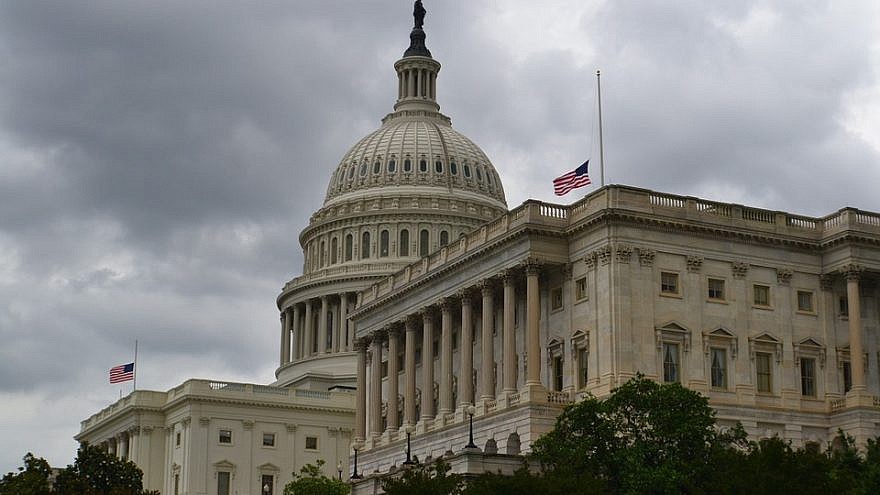The fourth time was the charm as the U.S. Senate finally cleared a major procedural hurdle on Monday evening to vote on a bill on Republican-introduced legislation that, if enacted, would impose fresh sanctions on Syria, boost security cooperation with Israel and Jordan, and attempt to tackle the anti-Israel BDS movement domestically.
The final tally to invoke cloture was 74-19.
Of that group, Gillibrand and Warren have each filed paperwork to form an exploratory committee as they inch closer to formally running for president in 2020. Brown and Sanders have been considering a 2020 run, with Sanders mulling it for a second time since running unsuccessfully in 2016.
Senators such as Gillibrand, Van Hollen, Warren, Feinstein and Sanders have previously expressed opposition to anti-BDS legislation.
The Combating BDS Act says that state and local governments have the right to punish state or local contractors from engaging in boycotting Israel. Such a measure has come under fire from the American Civil Liberties Union, which has said that it would violate the First Amendment. Senators such as Gillibrand, Van Hollen, Warren, Feinstein and Sanders have also expressed opposition, citing the ACLU’s concerns.
The Strengthening America’s Security in the Middle East Act rolls four bills into one.
The Ileana Ros-Lehtinen United States-Israel Security Assistance Authorization Act of 2019 strives to ensure that Israel is capable of defending itself against threats such as Hamas and Iran, including the regime’s proxies that includes Hezbollah. The bill, named for the longtime former Florida Republican congresswoman and staunch Israel ally, would increase U.S. security assistance to Israel to $38 billion over a decade as agreed to under U.S. President Barack Obama.
The United States-Jordan Defense Cooperation Extension Act ensures continued American support for a vital regional ally.
The Caesar Syria Civilian Protection Act of 2019 sanctions crucial targets of Syrian President Bashar Assad regime’s revenue, in addition to targeting Russian efforts in Syria that have enabled in civilian deaths during a seven-year civil war that some have labeled as a genocide by Assad.
Senate Democrats blocked the previous three attempts to move to a vote due to the 35-day partial government shutdown, which ended on Friday evening with U.S President Donald Trump signing a continuing resolution funding the government through Feb. 15, minus any money for his campaign promise of a border wall with Mexico.
“It’s absurd that the first bill during the shutdown is legislation which punishes Americans who exercise their constitutional right to engage in political activity,” tweeted Sanders, an independent from Vermont who caucuses with the Democrats.
[tweet id=”1082013021214597120″]
“Democrats must block consideration of any bills that don’t reopen the government,” he continued. “Let’s get our priorities right.”
“Senate Democrats should block consideration of any bills unrelated to opening the government until Sen. Mitch McConnell and Senate Republicans allow a vote on the bipartisan bills the House passed to open the government,” tweeted Van Hollen. “Mitch, don’t delay. Let’s vote!”
[tweet id=”1081612549332877312″]
The Jewish Democratic Council of America, which supported the Democratic effort to block efforts to invoke cloture on the bill, applauded the measure.
“JDCA strongly supports U.S. military aid to Israel, U.S. defense cooperation with Jordan and U.S. sanctions against the Syrian regime. JDCA also opposes the global Boycott, Sanctions, and Divestment (BDS) movement against Israel,” said the organization in a statement. “JDCA is committed to ensuring that support for Israel remains bipartisan, supports the legislation contained in S.1, and urges senators to support the bill.”
American Israel Public Affairs Committee spokesperson Marshall Wittmann told JNS: “We strongly support passing the motion to proceed to the legislation and final passage.”


























